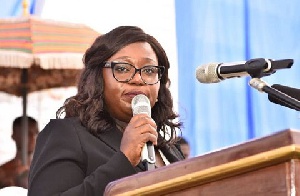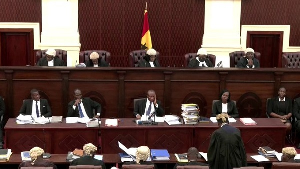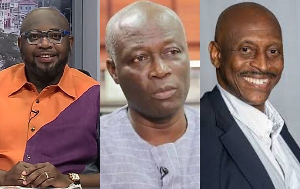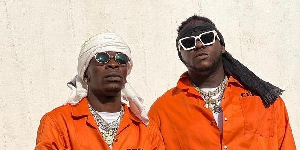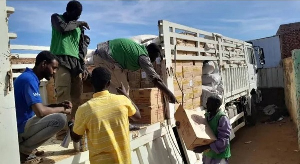Group Head of Legal and Company Secretary of Fidelity Bank Ghana, Maata Opare, has indicated that the bank recognizes the importance of achieving the Sustainable Development Goals (SDGs) and the primacy of equipping women and the youth for sustainable development in Ghana.
She stated that “the implementation of the SDGs is not possible without the empowerment of women and children.”
Ms Opare made the remarks at the Royal Dialogue on the SDGs held at the Manhyia Palace in Kumasi, which was aimed at discussing ways to support accelerated implementation to achieve the goals.
She said “the private sector needs a paradigm shift from seeing the development of women and the youth as a CSR initiative to viewing them as a key component of their commercial success by pursuing a model, which creates additional opportunity and increase the likelihood of successful women.”
Explaining some of Fidelity Bank’s social intervention programmes on women and the youth, Ms Maataa Opare said in 2015, Fidelity Bank, in collaboration with international partners, launched the Possible-to-Profit Initiative to fund scalable and sustainable projects.
This collaboration helped the bank to create an innovative financial product that offered low interest loan security facility to entrepreneurs.
The bank also introduced the MASO Project, which is a five-year programme to create opportunities for youth in the cocoa industry.
The project also trained the youth in financial literacy and the relevant business management skills.
On his part, the Asantehene, Otumfuo Osei Tutu, urged Ghanaians to demonstrate unparalleled leadership in the implementation of the SDGs for the country to experience accelerated growth.
The Asantehene said the country could not achieve its full potential if a greater number of people lived in abject poverty, did not have food to feed on, suffered from diseases and had no access to quality education.
According to him, “As ambitious as the goals may seem, Ghanaians have a collective duty to achieve the desired results since the goals presented us with the greatest opportunity to transform our nation to move from poverty to prosperity, hunger to abundance and from dependence to independence.”
The Asantehene mentioned that the key enablers to achieving such a goal was through partnership since the government alone cannot implement the actions.
“Traditional authorities have to take great interest in this agenda, as government seeks to integrate this agenda in to local development plans, we must appraise ourselves with these plans and work with MMDAs to ensure its successful implementation,” he added.
Akosua Frema Osei-Opare, the Chief of Staff said “the government has taken up the SDG challenge and made great strides towards their implementation by establishing a high-level ministerial committee as part of a robust institutional structure.”
She added that an SDG implementation committee which drew its membership from government, private sector, civil societies and the national technical committee has also been established to champion the goals.
Mrs Osei-Opare mentioned that Ghana signed onto the nation review process and will be reporting on the progress made on the implementation of the SDGs to the global community in June 2019 at the United Nations (UN).
Click to view details



Business News of Tuesday, 20 November 2018
Source: dailyguideafrica.com





